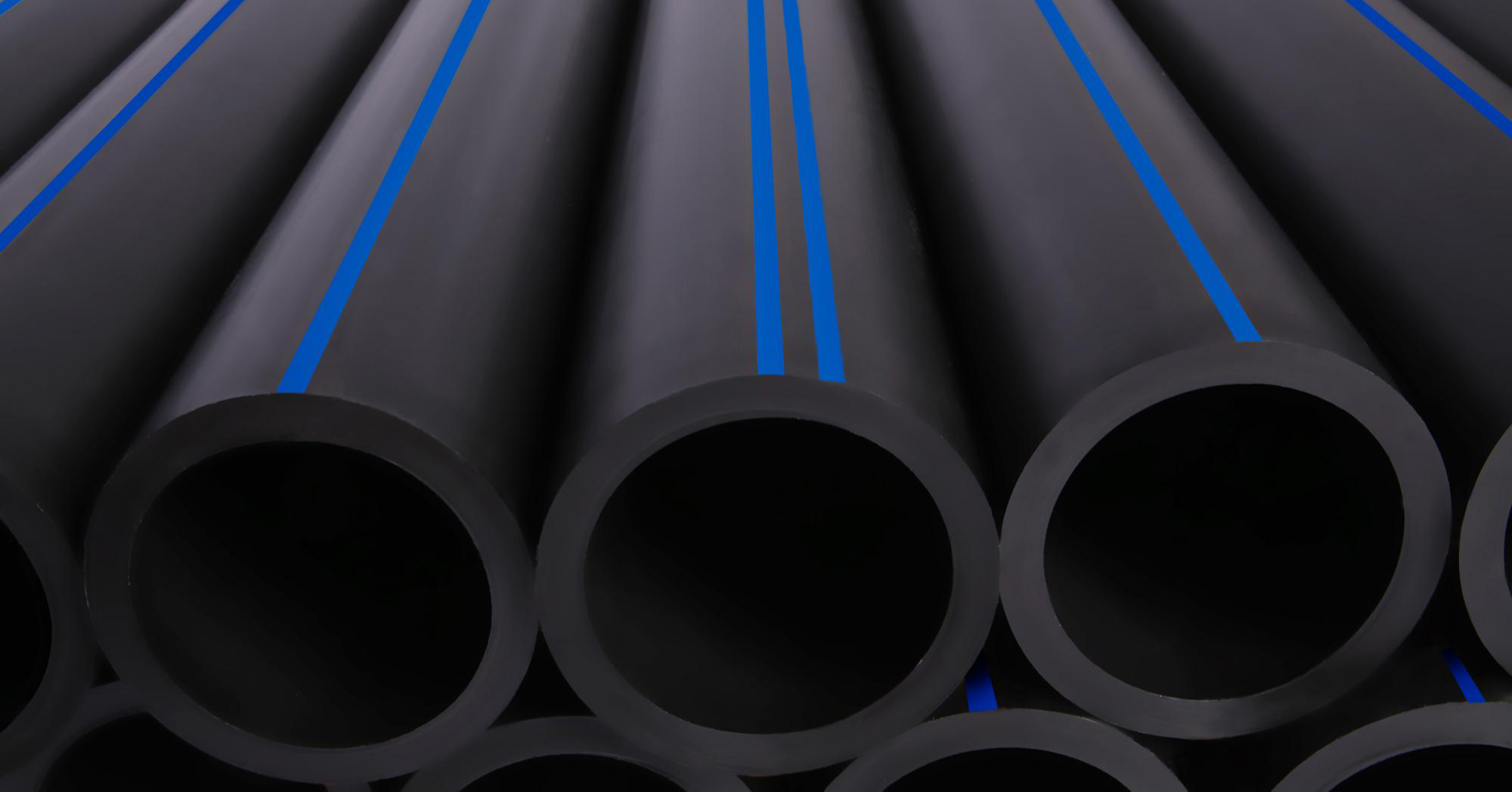Where to Source Midland TX HDPE Pipe Fittings in Stock for Oilfield Success
Understanding the Key Advantages of HDPE Pipeline for Water and Wastewater Management
Using HDPE pipeline in water and wastewater monitoring offers many advantages that warrant consideration. Its exceptional resilience and lengthy life-span make it a recommended option for lots of jobs. Furthermore, the product's resistance to deterioration and chemical damages enhances its integrity in numerous environments. Nonetheless, the advantages extend past just durability and resistance. Discovering its cost-effectiveness and environmental influence discloses much more engaging reasons for its extensive fostering in contemporary facilities
Remarkable Toughness and Longevity

HDPE pipe stands apart for its phenomenal sturdiness and durability, making it a favored choice in water administration systems. Constructed from high-density polyethylene, these pipelines can stand up to substantial pressure and stress, making certain dependable efficiency with time. Their robust nature allows them to endure severe environmental problems, consisting of temperature level variations and dirt motions, which can create various other products to stop working.
The lifespan of HDPE pipelines commonly goes beyond half a century, offering an economical solution for towns and sectors alike. In addition, the product's light-weight residential or commercial properties streamline setup, decreasing labor costs and timeframes. This sturdiness minimizes the requirement for regular repair work or substitutes, better boosting its economic appeal.
In water management applications, the integrity of HDPE pipelines means less disruptions and enhanced service continuity, making them important to lasting facilities development. The combination of resilience and long life strengthens HDPE's role as a foundation in reliable water administration solutions.

Resistance to Rust and Chemical Damages
While several materials succumb to rust and chemical damages in time, HDPE pipes display remarkable resistance, making them perfect for different water administration applications. This strength originates from the molecular structure of high-density polyethylene, which is naturally non-reactive and does not corrode like metals or weaken from direct exposure to severe chemicals. Therefore, HDPE is extremely reliable in environments with hostile substances, such as wastewater systems that might contain acids, bases, and organic solvents.
Additionally, HDPE pipelines can endure ecological aspects such as dirt acidity and saline conditions, additionally enhancing their suitability for diverse applications (Midland TX HDPE Pipe Fittings in Stock). Their capability to maintain structural honesty over time decreases the danger of leaks and failures, which is critical in ensuring the safety and security and integrity of water distribution and wastewater administration systems. The resistance to corrosion and chemical damage markedly contributes to the overall efficiency and longevity of HDPE piping solutions.
Cost-Effectiveness and Financial Advantages
When considering the economic implications of water monitoring systems, the cost-effectiveness of HDPE pipes comes to be apparent. These pipes offer lower installment and maintenance prices contrasted to standard products like steel or concrete. Their lightweight nature streamlines transportation and installation, resulting in minimized labor expenditures. Additionally, HDPE pipelines exhibit a long life-span, often exceeding 50 years, which converts to fewer replacements and long-term cost savings.
The resistance of HDPE to rust and chemical damage minimizes the requirement for expensive repair work and replacements. The pipes additionally sustain effective water flow, lowering power prices connected with pumping systems. By mitigating leaks and water loss, HDPE pipelines add to considerable economic benefits for districts and sectors alike. Generally, the initial investment in HDPE piping can yield significant monetary returns over the life-span of the water administration system, making it a sensible choice for lasting infrastructure growth.
Ecological Sustainability and Decreased Influence

Versatility and Flexibility in Installment
Since of their distinct residential or commercial properties, HDPE pipelines use amazing flexibility and versatility in installment, making them appropriate for a large range of applications. Their light-weight nature enables much easier handling and transport, reducing labor expenses and installation time. HDPE pipes can be curved and shaped to fit various surfaces and task needs, which is specifically valuable in challenging atmospheres.
In addition, their resistance to corrosion and chemical damage enables installation in varied settings without the need for specialized protective finishes. The ability to fuse joints creates a continual, leak-free system, improving the general honesty and reliability of the installation. HDPE's adaptability likewise suits ground activity, minimizing the risk of damage in locations vulnerable to shifting dirt. On the whole, these qualities make HDPE pipelines not only versatile however likewise a preferred choice for water and wastewater administration systems.
Regularly Asked Inquiries
Exactly How Does HDPE Pipe Contrast to PVC in Water Management Applications?
HDPE pipeline provides premium adaptability, resistance to deterioration, and resilience compared to PVC. Its lighter weight promotes simpler installment, while its lengthy life expectancy lowers replacement prices, making HDPE a recommended selection in water administration applications.
What Is the Life Expectancy of HDPE Water Lines Under Regular Problems?
Under normal conditions, HDPE pipes can have a lifespan varying from 50 to 100 years. Their durability and resistance to corrosion contribute to their long-lasting performance in numerous applications, making them a trusted option for facilities.
Are HDPE Pipeline Recyclable After Their Life Span?
Yes, HDPE pipelines are recyclable after their life span. custom hdpe pipe manufacturing Midland TX. They can be refined and repurposed right into brand-new items, greatly lowering ecological effect and promoting sustainability within the sector, making them an environment-friendly selection for piping options
What Is the Installation Process for HDPE Piping?
The installation process for HDPE pipes includes website preparation, trenching, pipe fusion or mechanical joining, backfilling, and pressure testing. Proper methods ensure a durable and effective system for moving water and wastewater properly.
Can HDPE Water Lines Be Made Use Of for Both Safe And Clean and Non-Potable Water Solutions?
Yes, HDPE pipelines can be made use of for both potable and non-potable water supply. Their flexibility, sturdiness, and resistance to rust make them appropriate for numerous applications, guaranteeing safe and reliable transport of water in different contexts.